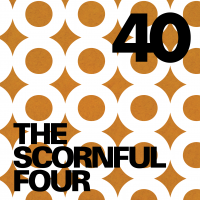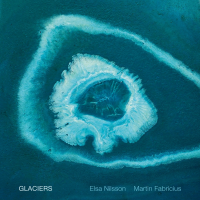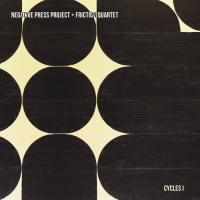Home » Jazz Articles » Extended Analysis » The Beatles: Revolver Super Deluxe Edition (5CD)
The Beatles: Revolver Super Deluxe Edition (5CD)
The curators of this set in turn have channeled the remarkably pragmatic and disciplined approach of the Beatles and company. The absence of high-resolution content in the physical package—it's available in the digital downloads only—is as arguable a decision as that not to consolidate the stereo and mono LPs with their respective singles on fewer compact discs. Still, the existing configuration tacitly highlights how such an expanse of experimentation is contained in relatively short playing time (forty minutes for all sixteen cuts in either audio dimension).
The existing format of this five compact-disc box also supplies continuity with the two Sessions CDs of demos, alternate takes and instrumentals plus studio chatter. Running roughly forty-five minutes each, these thirty-one tracks provide a view of the work in a manner akin to time-elapsed photography: it is altogether remarkable, for instance, to hear the progression of "Yellow Submarine" from its initial form as something of a folk confessional from guitarist/composer John Lennon to the final arrangement sung by drummer Ringo Starr as a children's song, complete with all manner of cartoon-like sound effects.
The startling effect isn't much less in hearing the early versions of guitarist/composer/vocalist George Harrison's "Love You To" without the sitar and Indian percussion of the finished version. It's a far cry from the ringing electricity of his other two contributions here, the acerbic "Taxman" and the lightly sour ambivalence of "I Want To Tell You."
Then there's eavesdropping on the dialogue between producer/arranger Martin as he helps orchestrate the violins, violas and cellos for "Eleanor Rigby:" it's no surprise the main author of the song, Paul McCartney, can't honestly discern the difference in the instruments with and without vibrato. A listener might not either but that hardly matters. The chilling effect becomes palpable in conjunction with his multi-tracked singing of the refrain: 'ah, look at all the lonely people.'
Yet this logical and more sophisticated extension of the arrangement for 1965's "Yesterday," isn't even the most ear-opening piece of Macca's here. French horn on the forlorn "For No One" predates piccolo trumpet on the following year's "Penny Lane," while the rousing r&b horns on "Got To Get You Into My Life"—just slightly less ebullient than the piano dominated "Good Day Sunshine" that adds to the superb pacing of the album—handsomely illustrate the impetus behind the whole group's desire to consider recording in Memphis.
And both of those sound (almost) utterly conventional in comparison with his composing partner's one-chord extravaganza. "Tomorrow Never Knows" assaults the senses with Starr's relentless hammering of his kit, a lead vocal filtered through a rotating Lesley speaker usually used for organ as well as the sounds of various tape loops. 'Listen to the color of your dreams...' indeed! Effects similar to the latter in the form of tape played backwards entered the overall mix of Revolver work by mistake when Lennon was listening to an early version of "Rain." It's most appropriate at the fadeout of this philosophical rumination on weather, as are the electric guitars that otherwise dominate. Along with muscular bass and the hard-hitting inventive drumming, these sounds are the foundation of tunes here that provide ballast to the innovative aspects of Revolver.
Unforeseen confluence of circumstances only served to blunt the impact of the album on its release (and may also have engendered a lingering lack of respect for it over the years). "I'm Only Sleeping," "She Said She Said" and "Doctor Robert" were all lifted from the fourteen tracks comprising the British version of this longplayer, then added by Capitol Records in the US to a composite of numbers for the American release titled Yesterday... And Today (Capitol, 1966).
As an immediate result, the more familiar, visceral force of the pure, hard rock and roll sound—where the foursome still evinces the tight bond of a band as it plays and sings (melodiously in both lead and harmony—was blunted in the eclectic context of Revolver. As was the similarly raucous "Paperback Writer:" it failed to reach 'Number One' when released as a single two months prior to the album.
In the interim, as described so forthrightly in the curiously uncredited 'Revolver Reception' essay (as indispensable to this package as Questlove's disingenuous take is superfluous), the kerfuffle arising from the initial choice of the Robert Whitaker cover photo for Y&T (the so-called 'butcher' shot), paled in comparison to the controversy generated by Lennon's comments on Christianity: an interview published with little fanfare in Britain caused a furor with its appearance in America just prior to the release of Revolver and the commencement of the Beatles summer tour.
The authors place these distractions in their proper context when balanced against the unexpected time off the Beatles enjoyed in the spring of '66 when plans for a third movie fell through. All of which content, as it populates the subtly-designed one-hundred-page book inside the Super Deluxe Edition slipcase, serves to magnify the focus of Giles (son of Sir George) Martin and his technical team, in conjunction with the writers, researchers, et. al., who assembled the photos and memorabilia (including a facsimile of a graphic novel drawn by Grammy Award-winning cover artist Klaus Voorman).
In the stereo remixes of the LP and single, there is a greater presence, separation and warmth than on the 2009 CD, while the mono sound taken from the near-sixty- year-old master distills the music to its essence (to continue the photographic simile, it is a freeze-frame). In that sense, the fastidiously-balanced, single channel audio for Revolver and its pair of companion recordings is a microcosm of the entire effort that gave birth to them and, by extension, this reissue in its various forms.
Contrary to all the evidence provided here, Revolver may well remain unfortunately overshadowed by its successors, as a fan favorite and otherwise. This despite the questionably arch concepts and untoward execution of the same underlying Sgt. Pepper's Lonely Hearts Club Band (Parlophone, 1967), The Beatles a/k/a The White Album (Apple, 1968) and Abbey Road (Apple, 1969). None of those efforts display the purposeful, discerning ingenuity that permeates both the Beatles' seventh long-playing album and its expanded counterpart.
Track Listing
CD 1: Revolver (New stereo mix) - Taxman; Eleanor Rigby; I’m Only Sleeping; Love You To; Here, There And Everywhere; Yellow Submarine; She Said She Said; Good Day Sunshine; And Your Bird Can Sing; For No One; Doctor Robert; I Want To Tell You; Got To Get You Into My Life; Tomorrow Never Knows. CD 2: Sessions One - Tomorrow Never Knows (Take 1); Tomorrow Never Knows (Mono mix RM 11); Got To Get You Into My Life (First version) – Take 5; Got To Get You Into My Life (Second version) – Unnumbered mix - mono; Got To Get You Into My Life (Second version) – Take 8; Love You To (Take 1) - mono; Love You To (Unnumbered rehearsal) - mono; Love You To (Take 7); Paperback Writer (Takes 1 and 2) – Backing track – mono; Rain (Take 5 – Actual speed); Rain (Take 5 – Slowed down for master tape); Doctor Robert (Take 7); And Your Bird Can Sing (First version) – Take 2; And Your Bird Can Sing (First version) – Take 2 (giggling). CD 3: Sessions Two - And Your Bird Can Sing (Second version) – Take 5; Taxman (Take 11); I’m Only Sleeping (Rehearsal fragment) - mono; I’m Only Sleeping (Take 2) - mono; I’m Only Sleeping (Take 5) - mono; I’m Only Sleeping (Mono mix RM1); Eleanor Rigby (Speech before Take 2) Eleanor Rigby (Take 2); For No One (Take 10) – Backing track; Yellow Submarine (Songwriting work tape – Part 1) - mono; Yellow Submarine (Songwriting work tape – Part 2) – mono; Yellow Submarine (Take 4 before sound effects); Yellow Submarine (Highlighted sound effects); I Want To Tell You (Speech and Take 4); Here, There And Everywhere (Take 6); She Said She Said (John’s demo) - mono; She Said She Said (Take 15) – Backing track rehearsal. CD 4: Revolver (Original mono master) - Tracklist same as above. CD5: Revolver EP - Paperback Writer (New stereo mix); Rain (New stereo mix); Paperback Writer (Original mono mix remastered); Rain (Original mono mix remastered).
Personnel
The Beatles
band / ensemble / orchestraJohn Lennon
guitar and vocalsPaul McCartney
bass, electricGeorge Harrison
guitarRingo Starr
drumsAlan Civil
french hornAnil Bhagwat
tablasAdditional Instrumentation
John Lennon: finger snaps, hand claps, harmonium, organ; Paul McCartney: acoustic guitar, electric guitar, tamboura, vocals, piano, clavichord, finger snaps; George Harrison: sitar, tamboura, finger snaps, hand claps, vocals; Ringo Starr: cowbell, tambourine, maraca, hand claps, vocals; Mal Evans: bass drum, backing vocals; Neil Aspinall, Pattie Harrison, Brian Jones, George Martin, Alf Bicknell, Terry Condon, Geoff Emerick, Marianne Faithfull, John Skinner: backing vocals;
Album information
Title: Revolver Super Deluxe Edition (5CD) | Year Released: 2022 | Record Label: UME/Apple/Capitol
Tags
PREVIOUS / NEXT
Support All About Jazz
 All About Jazz has been a pillar of jazz since 1995, championing it as an art form and, more importantly, supporting the musicians who make it. Our enduring commitment has made "AAJ" one of the most culturally important websites of its kind, read by hundreds of thousands of fans, musicians and industry figures every month.
All About Jazz has been a pillar of jazz since 1995, championing it as an art form and, more importantly, supporting the musicians who make it. Our enduring commitment has made "AAJ" one of the most culturally important websites of its kind, read by hundreds of thousands of fans, musicians and industry figures every month.




























